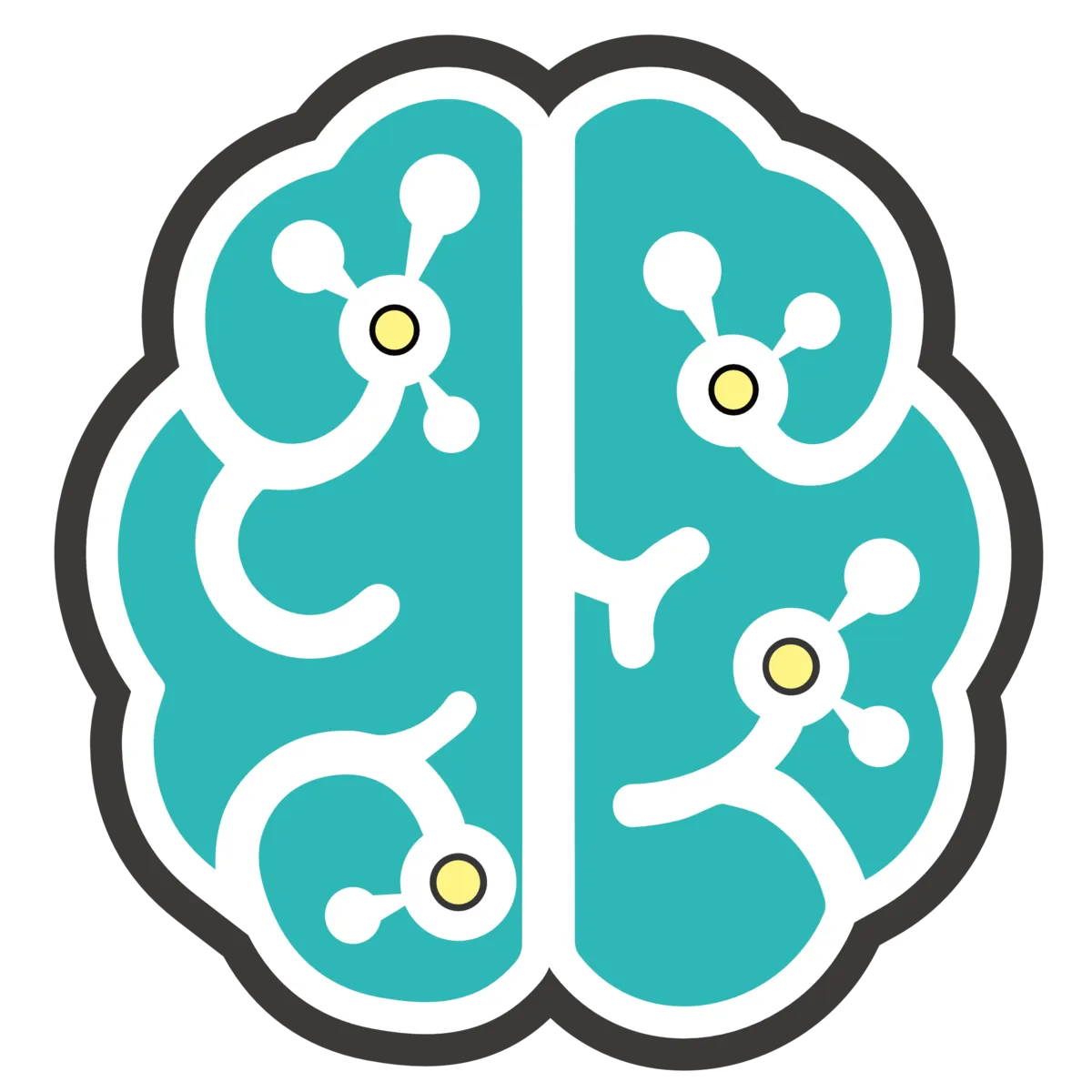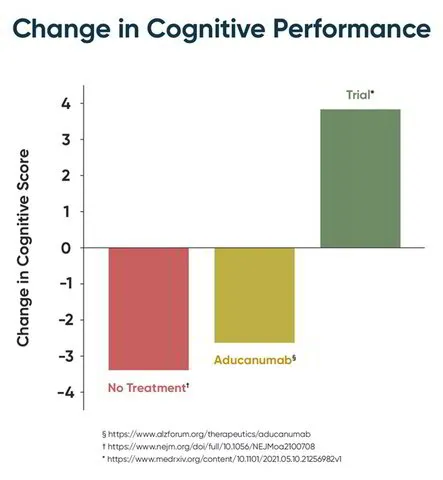THE SCIENCE
What is the Bredesen Protocol™?
Evidence-based Approaches to Cognition
Dale Bredesen, Professor UCLA Department of Neurology and Professor at the Buck Institute for Research on Aging in California, developed a protocol in 2011 to address cognition, originally named the "MEND Protocol™" and currently known as "The Bredesen Protocol™" with a personalised plan called the "ReCODE Report™" created through Apollo Health's AI Algorithm.
Below are some of Professor Bredesen's published papers (note, we are not making claims regarding the contents of these scientific papers but providing links with the published titles. We make no claims as to the efficacy of the protocol nor the published results). Further research is needed.
Professor Bredesen attempted in 2011 to start a trial in Australia (hear about this in the video linked at the end of this page), however, with the pace, structure and approval process for these types of studies, it is our hope that within the next 5-10 years we may see progress on a large scale trial of this nature.
A small ethical board approved study on the Bredesen Protocol has concluded in the USA and results are below.
2021 Clinical Trial Results
Following on from the 100 cases of documented reversal of cognitive decline (10 cases being from our clients), a small ethical board approved trial on the Bredesen Protocol was completed in early 2021 in the USA. This is the first ever formal trial with 25 participants aged 50-76 with MCI (pre-Alzheimer’s) or early dementia, which importantly was independently assessed, showed highly statistical improvements in cognition, functionality and even growth of parts of the Brain on MRI scan.
The next step would be a larger trial with a control group but this trial is yet more evidence that the protocols may be highly effective.
Read more about the trial here (currently in pre-print – to be peer reviewed):
Published Papers by Professor Bredesen
We encourage you to click on the hyperlinks below to read details on each published paper. If you do not understand the content or outcomes, you may print off each study or email the links to your doctor, a researcher, or other health care professional for interpretation. The Bredesen Protocol™ does not claim to be a "cure". Please see Apollo Health's website for further science of the Bredesen Protocol™.
Reversal of Cognitive Decline: 100 Patients
Bredesen et al.,J Alzheimers Dis Parkinsonism 2018, 8:5 DOI: 10.4172/2161-0460.1000450
Transcriptional Effects of ApoE4: Relevance to Alzheimer's Disease.
Theendakara V, Peters-Libeu CA, Bredesen DE, Rao RV Mol Neurobiol. 2018 Jun;55(6):5243-5254. doi: 10.1007/s12035-017-0757-2. Epub 2017 Sep 6.
Reversal of cognitive decline in Alzheimer's disease
Bredesen DE, Amos EC, Canick J Ackerley M, Raji C Fiala M7, Ahdidan J
Aging (Albany NY). 2016 Jun;8(6):1250-8. doi: 10.18632/aging.100981.
Inhalational Alzheimer's disease: an unrecognized—and treatable—epidemic
Bredesen DE. Inhalational Alzheimer's disease: an unrecognized—and treatable—epidemic.
Aging (Albany NY). 2016; 8:304-313. https://doi.org/10.18632/aging.100896
Metabolic profiling distinguishes three subtypes of Alzheimer's disease
Bredesen DE. Metabolic profiling distinguishes three subtypes of Alzheimer's disease. Aging (Albany NY). 2015; 7:595-600. https://doi.org/10.18632/aging.100801
Reversal of cognitive decline: A novel therapeutic program
Bredesen DE. Reversal of cognitive decline: A novel therapeutic program. Aging (Albany NY).
2014; 6:707-717. https://doi.org/10.18632/aging.100690
Published Papers by Other Authors
Based on or inspired by the "MEND" / Bredesen Protocol™
Chalfont G, Simpson J, Davies S, Morris D, Wilde R, Willoughby L, Milligan C. Personalised Medicine for Dementia: Collaborative Research of Multimodal Non-pharmacological Treatment with the UK National Health Service (NHS). OBM Geriatrics 2019;3(3):26; doi:10.21926/obm.geriatr.1903066.
Author(s): Dorothy Keine*, John Q. Walker, Brian K. Kennedy, Marwan N. Sabbagh. Journal Name: Current Aging Science Volume 11 , Issue 3 , 2018 DOI : 10.2174/1874609811666181019101430
Other Lifestyle Protocols and Research
Beyond Professor Bredesen, other researchers are discovering that lifestyle protocols may be showing a positive outcome on cognition. Below are links to other studies relating to lifestyle factors and cognition:
The FINGER Study
The well known FINGER Study published in 2015 recruited 1260 older adults in Finland with increased risk of dementia “'Both the intervention group and the so-called placebo group, where we gave regular health advice, improved during the two years', said Dr. Miia Kivipelto, MD, principal investigator and professor at Karolinska Institutet. 'But the improvement was much higher in the intervention group, in all of the [cognitive] sub-domains: executive function for [information] processing (how quickly people are able to do different tasks) and complex memory tasks. And the risk of cognitive decline was 30% higher for the control group compared to the intervention group.'”
This evidence from the 2015 FINGER Study the has now developed into a World-Wide multi-site study called WW-FINGERS which states: "The FINGER trial is the first randomized controlled trial showing that it is possible to prevent cognitive decline using a multi-domain lifestyle intervention among older at-risk individuals. The results highlighted the value of addressing multiple dementia risk factors as a strategy to protect brain health, and promote overall health and functioning."
UC Berkeley in California was awarded a US$47 million grant to include imaging for their arm of the FINGER Study called US-POINTER, which is a US$35 million Alzheimer's Association sponsored 2 year study across multiple sites in the USA.
The Brain Study
The 2017 Train the Brain Study in Italy of 113 MCI subjects aged 65–89 years
States: "In conclusion, a non pharmacological, combined physical and cognitive training in a social setting improves cognitive status of MCI subjects and improves indicators of brain health. The improvement is a small effect size. However, as pointed out by Ngandu et al.17, even small size effects in these initial stages may result in considerable gains in terms of public health. This underscores the importance of interventions aimed at multiple lifestyle factors as possible strategies to reduce or delay dementia conversion in MCI subjects, thus reducing dementia incidence."
Maffei, L. et al. Randomized trial on the effects of a combined physical/cognitive training in aged MCI subjects: the Train the Brain study. Sci. Rep. 7, 39471; doi: 10.1038/srep39471 (2017).
The Exercise Study
A 2011 study "Exercise training increases size of hippocampus and improves memory" in the USA
States in the abstract: "The hippocampus shrinks in late adulthood, leading to impaired memory and increased risk for dementia. Hippocampal and medial temporal lobe volumes are larger in higher-fit adults, and physical activity training increases hippocampal perfusion, but the extent to which aerobic exercise training can modify hippocampal volume in late adulthood remains unknown. Here we show, in a randomized controlled trial with 120 older adults, that aerobic exercise training increases the size of the anterior hippocampus, leading to improvements in spatial memory. Exercise training increased hippocampal volume by 2%, effectively reversing age-related loss in volume by 1 to 2 y. We also demonstrate that increased hippocampal volume is associated with greater serum levels of BDNF, a mediator of neurogenesis in the dentate gyrus. Hippocampal volume declined in the control group, but higher preintervention fitness partially attenuated the decline, suggesting that fitness protects against volume loss."
Exercise training increases size of hippocampus and improves memory Kirk I. Erickson, Michelle W. Voss, Ruchika Shaurya Prakash, Chandramallika Basak, Amanda Szabo, Laura Chaddock, Jennifer S. Kim, Susie Heo, Heloisa Alves, Siobhan M. White, Thomas R. Wojcicki, Emily Mailey, Victoria J. Vieira, Stephen A. Martin, Brandt D. Pence, Jeffrey A. Woods, Edward McAuley, Arthur F. Kramer Proceedings of the National Academy of Sciences Feb 2011, 108 (7) 3017-3022; DOI: 10.1073/pnas.1015950108
WHO Recommendations
The World Health Organisation recognizes and provides recommendations on risk factors and lifestyle behaviours and interventions to "delay or prevent cognitive decline and dementia" including: physical activity, nutrition, cognitive training, weight management, blood pressure, diabetes, cholesterol, etc.
How Does the Bredesen Protocol™ Work?
Professor Dale Bredesen published over 200 papers during his 30 years of research in neuroscience and neurodegenerative diseases. You can read Professor Bredesen's detailed CV for more information on his history. Below are explanations on the Protocol from Professor Bredesen's book, trainings, and presentations; we are not making any of the below statements as our own and are not making assumptions, guarantees or claims as to the efficacy or suitability of the protocol for any group or individual.
In his book "The End of Alzheimer's", Professor Bredesen describes in his protocol over 36 parameters or “holes in the leaky roof” which may lead to degeneration of the brain, which (according to his theory) may be why mono-therapeutic drug approaches have thus far been ineffective, as plugging only one hole may not fix a “leaky roof”.
Professor Bredesen and other scientists theorize that Alzheimer’s Disease is triggered by multiple factors that lead to Beta Amyloid Plaques, Tau Tangles, brain cell death, and synapse retraction, which may be contributors to memory loss and Alzheimer’s Disease. These factors may be unique to each individual, and may include genetics, metabolic parameters such as glucose and insulin levels, low Vitamin B12 and Vitamin D levels, high homocysteine, inflammatory parameters such as CRP levels and/or reactions to heavy metals and toxins such as common moulds.
The small clinical study in 2021 and the series of case studies published in 2018 detailing the reversal of symptoms of 100 cases of cognitive decline gives hope for further research. Over 1000 practitioners have been trained in the Bredesen Protocol™, whilst being fully transparent that further clinical studies using the Bredesen Protocol™ are required.
If you wish to understand more about the protocol, please read Professor Bredesen's book "The End of Alzheimer's", and check his company's website for further scientific references.
Professor Bredesen Explaining the Protocol
Video below of Professor Bredesen presenting at TEDx Manhattan Beach


